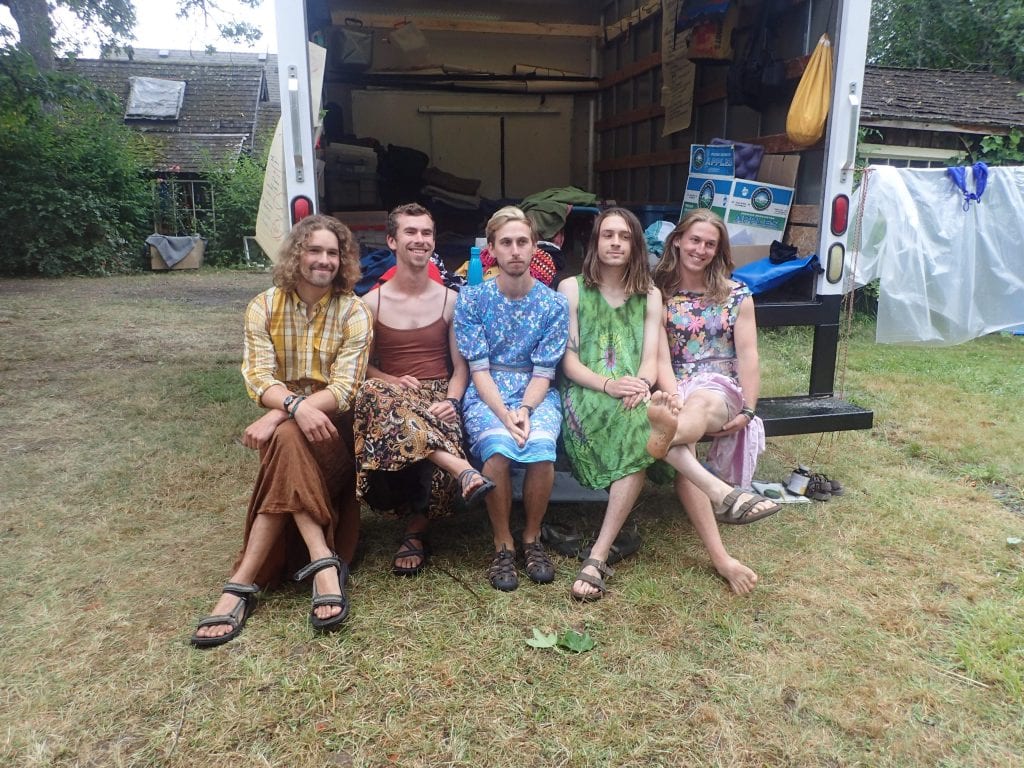There is still time! We have extended the submission deadline for our 10-Year Anniversary Special Edition Redfish Journal to September 30th 2019. This means, you still have an opportunity to be published in the special anniversary edition!
Your submission can be anything and should only take you about 10 minutes to put together. Here are a few ideas:
- a haiku
- a song you wrote
- a memory or sketch from your journal
- a memorable recipe
- a playlist you made during Redfish
- a great photo you took during Redfish
- A one-page reflection of your time during Redifish
We want this journal to be a celebration of YOU so please in your submissions ASAP! Send submissions to Joy@schoolofchange.ca
Here is a one submission from Nadine Raynolds, the originator of Redfish:
The Redfish School of Change was a dream come true. As a young activist, who grew up believing in education, I searched for the “ultimate environmental education program”. Working with the Pembina Institute in the late 1990s and early 2000s, and going to several conferences with my colleague, mentor, and friend, Dave Mussell, we fantasized about a revolutionary program.
The first iteration was the “Rocky Mountain Environmental Education and Training Centre”. Along with Ed Whittingham at UTSB Research in Banff, we drafted the Terms of Reference for a feasibility study, and searched for funding to develop an education centre at its finest, walking the talk in every way. While I had a small contract in 2003 to develop some ideas, we were not successful in securing funding.
Then in 2004, I went to Royal Roads to do my Masters in Environmental Education and Communication. My research was a focus group of youth activists, who were asked to describe the most influential education experiences that put them on the path to being an environmental and community leader. We heard stories from youth across the country, which helped form a series of design principles for shaping the “Bioregional Youth Leadership Field School” – the working name before “Redfish”.
After this research process, came another fundraising attempt. Now that we had educational design principles, what would be the structure? A summer camp, high school semester, university field school, or something else? With a small grant from the McConnell Foundation, I conducted market research out of the Little Slocan Lodge. This information provided further insight into the needs and interests of potential participants.
Then, drawing on the connections of the Pembina Institute, we landed a large grant to start the program. I distinctly remember the day I went into Shell Canada’s office tower in Calgary to pitch the idea. For a young, highly principled environmental activist, it was a strange moment, but a time that I still reflect on as being pivotal in my view on creating change: it takes all kinds. Change happens when we can work together, bridging backgrounds, experiences, and views.
This seed funding allowed the Redfish School of Change to spawn. With program development funding in place, we now had significant leverage to find partners. Eric Higgs and the School of Environmental Studies at University of Victoria were keen. We also collaborated with Pearson College, and Ruth Whyte brought her many lessons learned from running the Pearson Seminar on Youth Leadership. With other educators and innovators, namely Brenda Beckwith, Ryan Hilperts, and James Rowe, the first program took shape and was piloted in spring 2009. We went “in the field for the future”.
While the journey has changed over the years, from starting in the Kootenays and traveling down the Fraser River, to now going deep in the Salish Sea, the essence of what is Redfish remains. It is founded on a passion for good education and a dream of a better world for nature and people. It is shaped by those who participate, and designed for young people to realize their own path and potential in being agents of change in a world that needs you so very much.
Thank you for the great years, and to the new leaders who carry Rudy onto new adventures. Be strong and go wild, and don’t forget to pull into an eddy every now and then. It’s a journey, and we’ll do it together.













